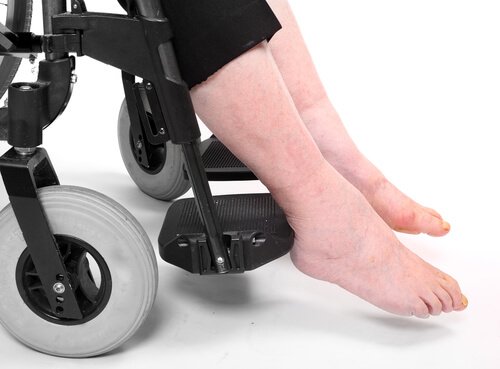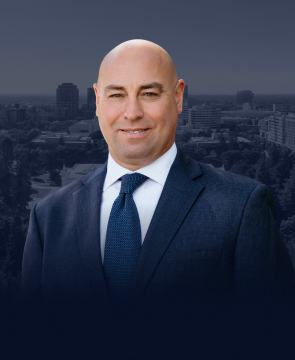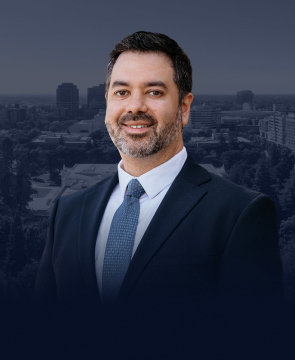CRPS Lawyers
Complex Regional Pain Syndrome (CRPS) is chronic pain, usually in an arm or leg, that occurs after suffering a traumatic injury, stroke, heart attack, or undergoing surgery. It often develops after a relatively insignificant injury, which can lead to stress on top of the pain, as the stricken individual seeks to cope with the unexplained torment.
Pain experienced by CRPS victims is described as constant, extremely intense, and out of proportion to the original injury. CRPS victims may require extensive medical treatment, and the ongoing pain may force them to miss time from work. If you suffer from CRPS from an injury caused by someone else’s negligence, you should learn about your rights to compensation.
At Demas Law Group, our Sacramento Complex Regional Pain Syndrome attorneys understand what you are going through. We have helped thousands of people recover the full and fair compensation they deserve after preventable accidents have left them with painful and debilitating injuries. Now, we stand ready to help you.
Don’t fight with insurance companies over your right to compensation for CRPS. Let our knowledgeable personal injury attorneys in Sacramento take that stress off you. Schedule a free consultation with our team today. We will review the details of your case and discuss all the options available for pursuing the compensation you need to move forward with your life.
What Is Complex Regional Pain Syndrome?
Complex Regional Pain Syndrome (CRPS), formerly known as Reflex Sympathetic Dystrophy or RSD, is a progressive disease of the nervous system, which is the bodily system that allows us to feel pain. It is typically triggered by some kind of injury, such as a fall that causes a fracture or a car accident that causes a crush injury. It may also result from surgery or even extreme emotional stress.
The pain of CRPS usually affects one or more limbs, which may be the site of injury, but can occur in any part of the body. It often starts in one area of the body and spreads.
People with CRPS experience pain that is far beyond what their injuries suggest they should. The pain from CRPS is often debilitating.
Extreme pain that lingers a month or two after an otherwise minor injury in a slip-and-fall accident, car accident, or after surgery could be diagnosed as CRPS. Complex Regional Pain Syndrome is a very serious, lifelong disorder that can strike seemingly from out of nowhere.
Symptoms of CRPS
Part of the difficulty with CRPS is that, like pain, each person experiences it individually. Symptoms change and may come and go, even within a single day. This can create an obstacle for some physicians when diagnosing CRPS.
However, there are four symptoms that have come to be accepted as criteria for a CRPS diagnosis. A diagnosis may be made if person is exhibiting three of these four CRPS symptoms:
- Chronic pain. The primary pain of a CRPS sufferer is usually a burning sensation. Pain may also be described as throbbing, crushing, tingling, shooting, aching, stabbing, etc. The skin temperature of the affected area may cause excessive sweating.
- Inflammation. In addition to swelling, the skin may exhibit signs of bruising (a purplish color), mottling, tiny red spots, and look shiny.
- Spasms. This may include vasoconstriction (tightening of blood vessels) and muscle spasms, sometimes referred to as “rolling spasms,” in the extremities.
- Insomnia/Emotional Disturbance. The stress of extreme pain with no obvious cause can lead to sleep disturbances, confusion, concentration difficulties, short-term memory problems, and more psychological difficulties.
Additional symptoms that can be part of CRPS include, but are not limited to:
- Hypersensitivity to touch, sound, temperature change, barometric pressure changes, vibration, etc.
- Swelling and stiffness in affected joints
- Migraines and/or cluster headaches
- Tremors (shakes)
- Changes in hair and nail growth, including increased or decreased growth, and nails becoming brittle, cracked, or grooved
- Irritability
- Depression
- Fatigue
A CRPS sufferer may experience problems moving the affected body part(s) because of the pain. Over time, this can lead to weakness and atrophy, including muscle and bone-density loss.
If you’re experiencing any of the symptoms above, you should seek medical care and ask about a CRPS diagnosis. If you believe your CRPS is the result of an accident someone else caused, you should talk to our knowledgeable personal injury attorneys about seeking compensation for the costs of your CRPS injury.
Treatment for CRPS
Complex Regional Pain Syndrome is typically treated with pain medication and a variety of physical therapies and coping strategies, often in a try/fail approach until a combination that provides some measure of relief is found. In some severe cases, doctors may try interventions like sympathetic nerve blocks or spinal cord stimulation.
A patient being cared for in a clinic that focus on pain or by doctors who understand CRPS may be treated with an interdisciplinary approach, with such professionals as a primary care physician, neurologist, interventionist, psychologist, and surgeon working together to come up with a proper course of action.
Treatment for Complex Regional Pain Syndrome can be extremely expensive. So if your CRPS was caused by someone else’s negligent actions, you should learn about your options for pursuing a claim for compensation.
Seeking Compensation After a CRPS Diagnosis
If you have been diagnosed with CRPS as the result of an accident caused by someone else’s negligence, California personal injury law is on your side. At Demas Law Group, our dedicated Sacramento CRPS lawyers can investigate your accident to demonstrate legal responsibility (liability). We will also develop a full accounting of what you are owed.
The strength of your case may depend on the association between the injury you suffered in an accident and the diagnosis of CRPS. This uncertainty is lessened when the injury that led to the CRPS diagnosis obviously resulted from the defendant’s negligence.
In some cases of CRPS, the original injury is obvious, and identifying who is at fault is a straightforward process. For example, if you developed CRPS after breaking your arm in a car accident for which you were not at fault, the other driver may be held liable for your damages, including all of your medical expenses. If you developed CRPS after you slipped and fell and broke an ankle because of a hazard in a grocery store aisle, the store owner may be held liable for your damages, including losses related to CRPS.
In other cases of CRPS, the original injury may not be as obvious and proving fault may be more difficult. However, our skilled Sacramento Complex Regional Pain Syndrome attorneys have handled many cases like these, and we know what it takes to build a strong case.
Once we have gathered all the evidence and calculated your damages, we will file the appropriate claims with insurance companies. If the insurance companies refuse to provide appropriate CRPS settlements, our attorneys will pursue personal injury lawsuits to ask the courts to order payment.
We Can Make a Difference in Your CPRS Claim
Complex Regional Pain Syndrome is a complex disease that is currently the subject of intense research, and much about what causes it remains uncertain. Defense attorneys or insurance companies will often cite conflicting medical studies in an attempt to discredit a plaintiff’s medical diagnosis of CRPS. Pain itself is a relative concept that is often disputed at trial.
The experienced CRPS attorneys at Demas Law Group understand Complex Regional Pain Syndrome and what you are going through. We will take up your cause. We can connect you with medical specialists in the Sacramento metropolitan area who understand CRPS. We can also pursue comprehensive compensation for you if someone else is responsible for your pain.
Schedule a free, no-obligation consultation with an experienced Complex Regional Pain Syndrome attorney from Demas Law Group today. We do not charge for our services unless and until we recover compensation for you.
Call (916) 764-3059 or contact us online now.
This literature may be considered attorney advertising or an offer of professional services, according to rule 1-400 Rules of Professional Conduct by the State Bar of California. The information does not constitute a guarantee, warranty or prediction regarding the outcome of your potential legal matter.








